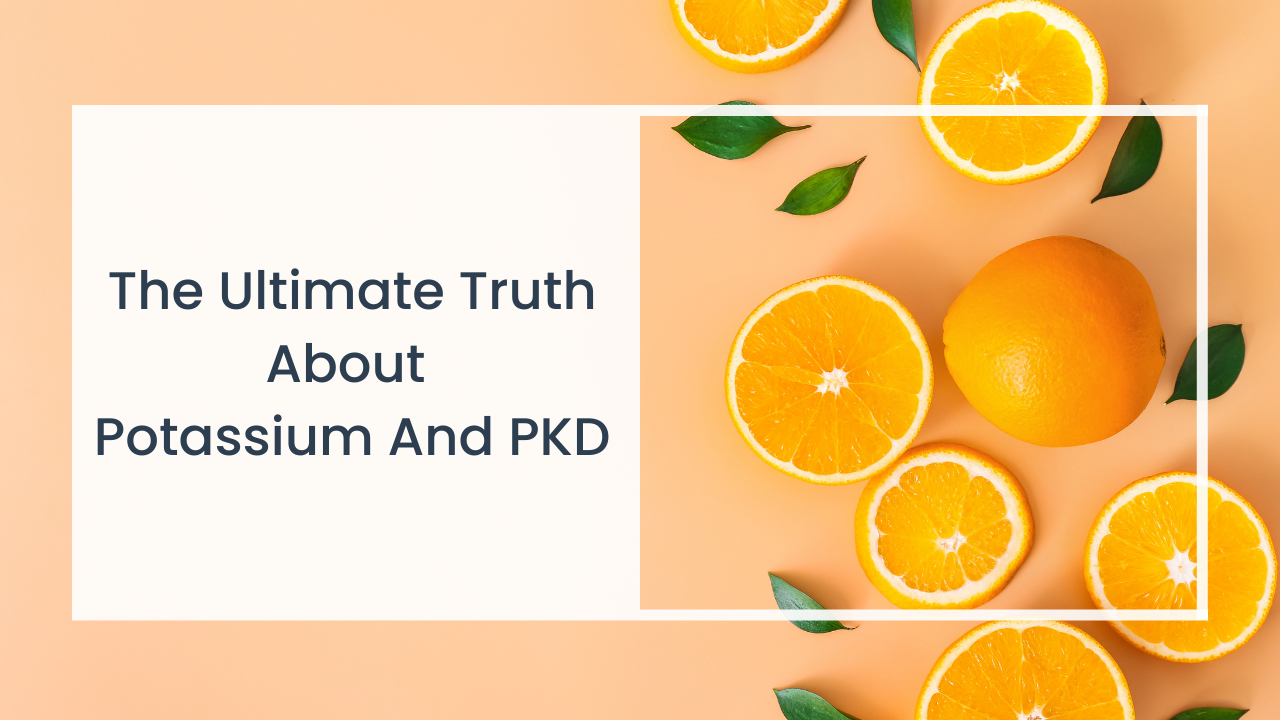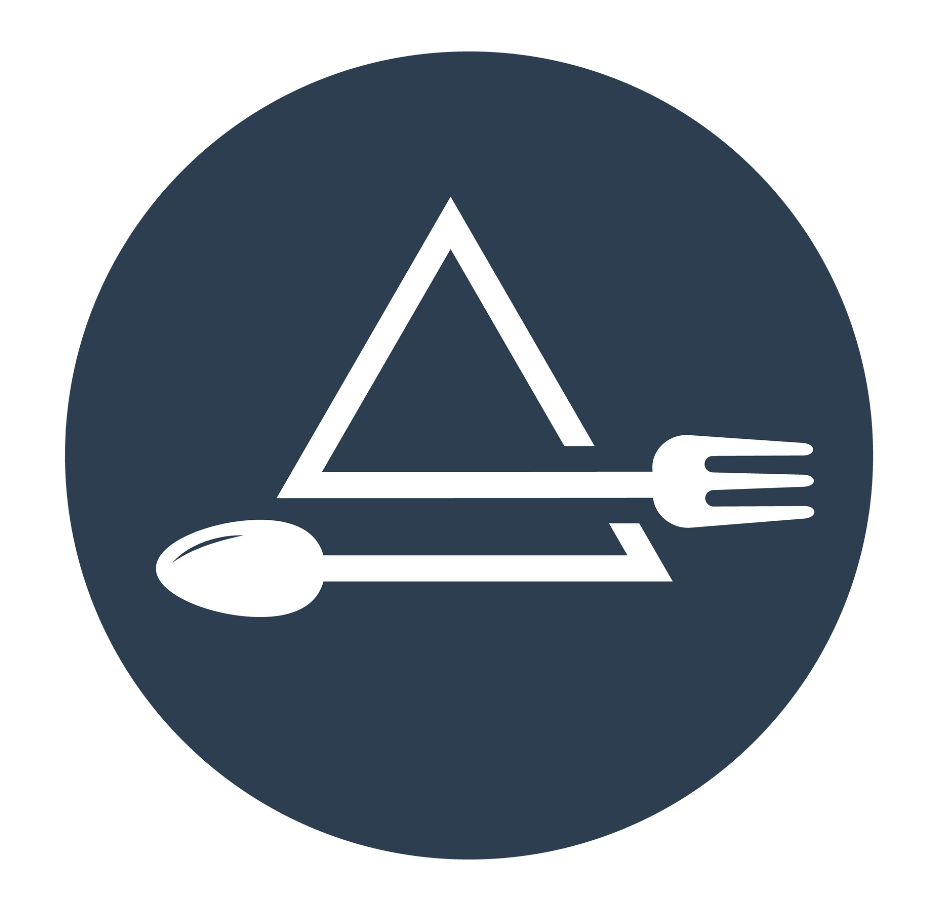
The Ultimate Truth About Potassium, PKD, and Your Kidney Health
May 09, 2024Navigating nutrition for Polycystic Kidney Disease (ADPKD) can be downright confusing, especially with all the misinformation and conflicting opinions out there. Many of the dietary recommendations shared online are for people on Dialysis. One common misconception, often repeated, is about potassium and PKD kidney health. This is the belief that everyone with PKD should restrict potassium, and higher potassium foods, to keep their kidneys healthy for longer. In this blog, we'll debunk these misconceptions, explore the perks of potassium for PKD, look at dietary recommendations, and shed light on how much potassium is good for you.
What Is Potassium?
Potassium is a nutrient that plays an important role in your body’s fluid balance, muscle contractions, and nerve signaling. Its primary role is to maintain fluid level balance inside your cells. Your body can’t make potassium, this is why it's considered an essential nutrient. Potassium has to come from an outside source, like diet or supplements.
You might have heard potassium referred to as an electrolyte, it’s true! Potassium carries a small positive electrical charge. This is the part of potassium that helps with your nerve signaling.
Potassium is found naturally in whole foods but is also a common component of supplements and preservatives often added to processed foods.
Sources of Potassium
Potassium is naturally present in various plant and animal foods, including beverages. Fruit, vegetables, beans, legumes (such as lentils), and sweet potatoes are rich sources of potassium.
The potassium content of your diet is closely linked to the amount of fruits and vegetables you consume. They are the best sources of potassium!
Meat, poultry, fish, dairy, and nuts also contain potassium. Notably, whole-wheat flour and brown rice have significantly higher potassium levels when compared to their refined counterparts which are white flour, and white rice.
PKD Friendly, Potassium Rich Foods
There are a lot of PKD-friendly and potassium-rich foods. Below are some great examples! If you are following ketogenic therapy, not everything shown is lower in net carbohydrates. Know this, a balanced diet including potassium-rich foods supports your PKD kidney and heart health.
- Fruit: bananas, oranges, avocados & cantaloupe
- Vegetables: broccoli, butternut squash, tomatoes, asparagus
- Nuts & seeds: pistachios, peanuts, pumpkin seeds, macadamia nuts
- Beans & Legumes: kidney, pinto, and lentils

The Kidney Connection
Your kidneys play an important role in filtering, and removing, excess fluids and waste products from the blood via urine.
When running at full function, the kidneys can filter 120–150 quarts of blood daily, making 1 to 2 quarts of urine. This process is vital for preventing the buildup of waste in your blood and for maintaining stable levels of electrolytes like sodium, magnesium, and potassium.
With decreased kidney function, a lower Glomerular Filtration Rate (eGFR), the kidneys can become less effective at filtering potassium. Sometimes, because of that reduced filtration, potassium levels in the blood can rise above what is considered a normal range.
A "normal" potassium range is 3.5-5.2 mEq/L. Depending on what your kidney function is, your MD might use a different goal range. Different labs will also have slightly different reference ranges listed. It is normal for your values to go up and down within the normal range. That's where there is a range!
Elevated potassium levels, known as hyperkalemia, aren’t dangerous for your kidneys. Surprised? What elevated potassium levels can impact negatively is the heart. Remember, your heart is a muscle. Potassium levels in the blood, both too little or too much, can change how your heart contracts and beats. A common symptom of having too much potassium is an arrhythmia, which is an abnormal heartbeat. Severe cases of hyperkalemia can lead to cardiac arrest and even be fatal.
Some medications, like those frequently taken for blood pressure management, can contribute to elevated potassium levels. If you have high lab values for potassium, review the medications you are taking with your healthcare team to determine if any are causing or contributing to it. Dietary intake often isn't to blame!
The PKD Connection
Everyone who has PKD or CKD should automatically restrict potassium...100% not true.
Let's dispel that myth right now!
The blanket recommendation for a potassium restriction is not beneficial for PKD health. It's also not considered best practice either. Individualized recommendations, considering factors like kidney function, other medical conditions, and lab results trends are key.
Most of the clients I work with don't require a potassium restriction. In many cases, we put potassium-rich foods they've been avoiding back on their plate. With PKD'ers who have a lower Glomerular Filtration Rate (eGFR) we look at their history, labs, medications, and more to identify potential future risks of elevated potassium levels. Often, non-kidney-related factors are discovered when lab values run higher.
Being aware of potential causes for increased potassium levels, beyond dietary intake, allows them to question and investigate the real culprits behind those higher values. It also opens up better conversations around PKD care with their doctors and care team.
Recommended Dietary Intake
General Guidelines
Recommended potassium intake varies depending on age and gender. The Adequate Intake (AI) for healthy adults is:
- Male: 19+ years old = 3400 mg of potassium
- Females: 19+ years old = 2600 mg of potassium
The United States Food and Drug Administration (USDA) has set the adult Daily Value (DV) for potassium at 4700 mg, this intake is associated with decreased cardiovascular disease risk.
Taking it one step further, the World Health Organization (WHO) recommends adults consume < 2,000 mg of sodium and at least 3,510 mg of potassium per day to reduce the risk of cardiovascular disease.
With a lot of my clients, I start with a goal of 3,500 mg of potassium and like to see how what they are eating adds up.

Should You Restrict Potassium?
In one word, NO.
Not unless your Doctor has told you to. If you aren’t sure, ask them. Most often, restrictions are put in place when there is an elevated potassium lab trend or a high risk of hyperkalemia. Restriction is not necessary for everyone, and dietary potassium intake should be tailored to each person's needs.
The National Kidney Foundation (NKF), Kidney Disease Outcomes Quality Initiative (K/DOQI), and the Academy of Nutrition & Dietetics are unanimous across the board stating:
“...Dietary potassium intake should be individualized in adults with CKD.”
Foods rich in potassium “need not be restricted”, they offer benefits that are beneficial to people with CKD.
ONLY restrict potassium intake when advised by a healthcare professional who has made the recommendation based on your specific lab results and medical conditions. If you notice a potassium level or trend that you're unsure about, or if you're considering restricting your intake, start a discussion with your healthcare provider.
If your potassium lab result exceeds the normal range, you should receive a call from your MD's office with recommendations on what to do, and they will often schedule a follow-up test to recheck your levels. Your dietitian can also assist by reviewing labs with you, looking at trends, and your dietary intake.
What Does The Science Say
What do we know, and what does the science show? I want to highlight three key areas, particularly important for Polycystic Kidney Disease (PKD), where a potassium-rich diet has a positive impact.
A potassium-rich diet offers numerous Perks For PKD:
-
Helps Lower Blood Pressure: Potassium helps relax blood vessels, contributing to lower blood pressure.
-
Supports Normal Blood Pressure: Helps limit the negative effects of sodium by helping to excrete more in urine.
-
Lower Stroke Risk: Studies show that a > 3,500 mg a day is associated with the lowest stroke risk.

Potassium and sodium intake are both connected to heart disease. But in the exact opposite way!
- High-salt diets increase heart disease risk.
- Higher potassium intake decreases heart disease risk.
- Low potassium, especially combined with a high-sodium diet, raises the risk of high blood pressure.
- Increasing potassium while also reducing sodium intake can help lower blood pressure and reduce stroke risk.
This relationship is particularly significant when it comes to salt-sensitive hypertension (SSHT), common with Polycystic Kidney Disease (PKD). A higher potassium-to-sodium ratio is crucial for better blood pressure management and long-term PKD kidney and heart health.

Kidney Stones Prevention and Bone Health
Low potassium intake can lead to calcium being pulled from the bones. Doesn't sound very pleasant. Over time this can contribute to mineral bone disease and weakened, brittle bones. The good news is that higher intakes of potassium-rich foods, all those delicious fruits and vegetables, are associated with stronger bone density.
When calcium is pulled from bones, it often ends up dumped into urine. High levels of calcium in urine can combine with other compounds, like oxalates, forming crystals and contributing to kidney stone formation and PKD kidney injury.
Research shows that a diet high in potassium is associated with a lower risk of getting kidney stones. Many of my clients and folks in the PKD community are put on potassium citrate by their MD for these exact reasons. Check out Kidney Stones and Polycystic Kidney Disease to learn more.
A potassium-rich diet provides additional "urine" balancing benefits. You might hear potassium referred to as an “alkalinizing agent.” This is correct, potassium-rich foods don't generate acid in in body during digestion. Instead, they contribute to the production of a base. This base helps buffer acid and maintain the acid/base balance in your body. This is a good thing.
Your kidneys play a crucial role in this and a more acid-producing diet (like the standard American, meat-o-keto, or a bulletproof diet pattern) is more work for your kidneys. A potassium-rich diet helps take some of this workload off your kidneys.
Key Takeaways For You
- Don't automatically restrict potassium-rich foods because you have PKD
- Only limit potassium intake if you have been told to by your MD or Healthcare team
- Diet isn't always to blame for elevated potassium labs. Explore other causes with your medical team.
- A diet rich in potassium has Perks for PKD and is good for your kidney and heart health.
- A diet rich in potassium + low in sodium is even better!
- A potassium-rich diet is protective against kidney stones, which PKD'ers have a risk of forming.
- Last, but not least - individual recommendations that support you and your goals are worth their weight in kidney gold
Continue this potassium & PKD conversation on The PKD Dietitian Podcast.
Check out Episode #25. Potassium and PKD: Should you restrict it to keep your kidneys healthy?
Happy & Healthy Eating,
Diana, The PKD Dietitian


